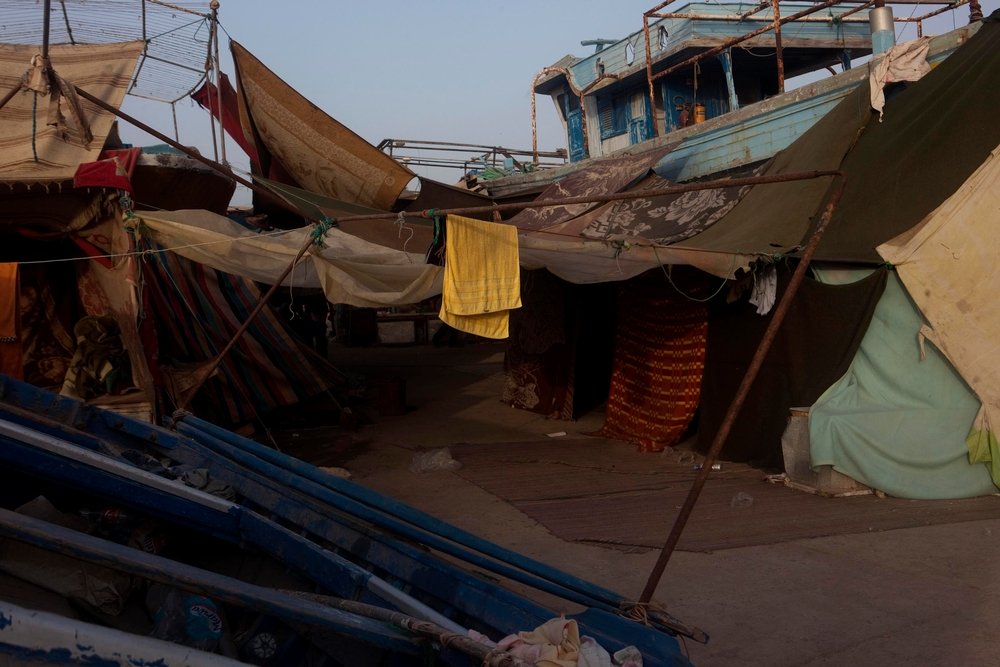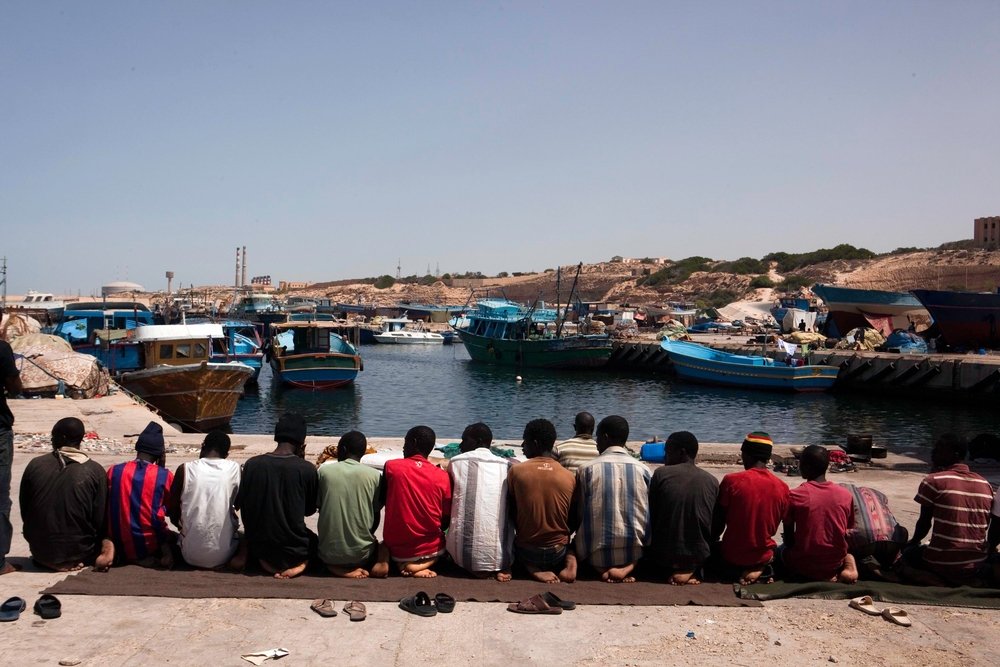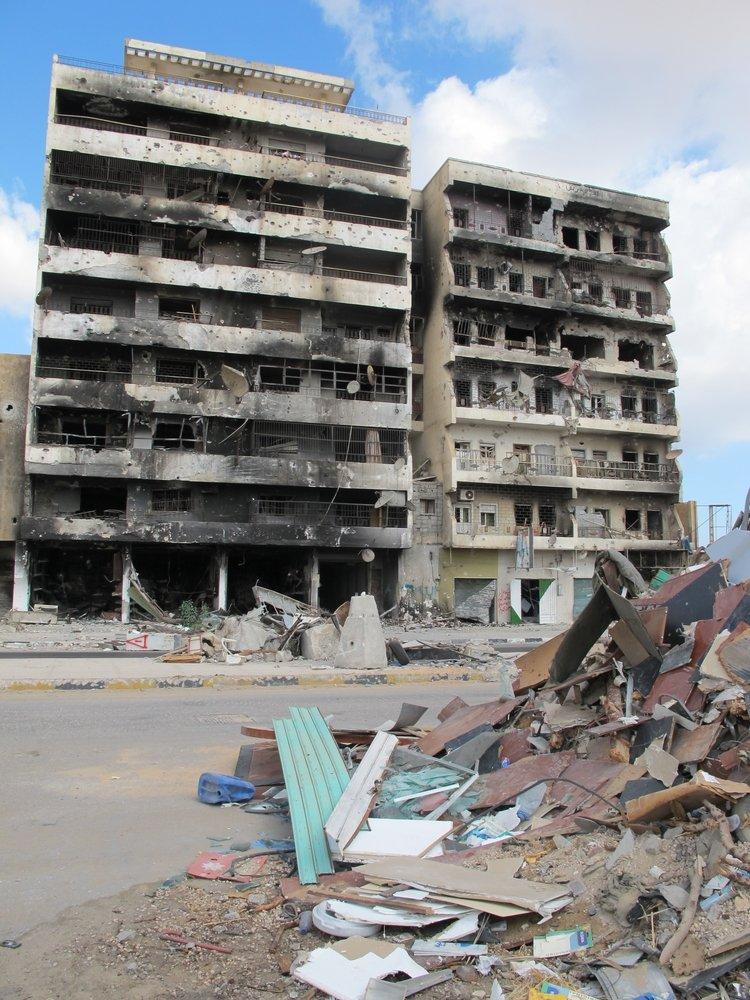
Tripoli - Hundreds of vulnerable migrants and refugees in Tripoli are living in appalling conditions without proper medical care or security, according to Doctors without Borders (MSF). The international medical humanitarian organisation, which has started providing basic health care to two communities of displaced foreign nationals, says they need urgent protection and assistance.
One community of about 1000 refugees and migrants lives in and around boats on an abandoned military base in Tripoli, while another group of 200 have sought shelter on a farm since fighting broke out in southern areas of Tripoli.
‘Many of these people already fled from fighting in their home countries, such as Somalia, Sudan or other African countries’, says Simon Burroughs, MSF’s emergency coordinator in Tripoli. ‘ Some people came to these makeshift camps looking for a way to cross by boat to Europe – while others came to seek refuge from the fighting in Tripoli. All of them remain trapped with nowhere to go.’

MSF has provided medical consultations in both locations and is planning to distribute clean drinking water and hygiene items.
‘Many suffer from respiratory infections, skin diseases and gastro-intestinal complaints,’ describes MSF medical coordinator Dr. Paulo Reis. ‘These medical problems are linked to their very poor living conditions. Most of the medical conditions we have treated are also stress-related – including difficulty sleeping at night due to extreme and constant fear.’
Patients have told MSF how they are unable to leave the makeshift camps due to the fear of being harassed, beaten or arrested within the city. They told the MSF team that they have been threatened at night by unidentified armed men. Those migrants staying on the farm have been ordered to leave immediately.
National authorities, the United Nations High Commissioner for Refugees (UNHCR) and the International Organisation for Migration (IOM) need to ensure the protection and basic needs of these refugees and migrants trapped in and around Tripoli.
MSF, which provides assistance to refugees and migrants in Tunisia and in southern Italy, stresses that international borders must remain open; both neighbouring states and European governments must ensure access to asylum procedures and humane reception conditions.
In Tripoli, MSF continues to support strained medical facilities with medical supplies and staff when needed. MSF medical and surgical teams are supporting Libyan medical staff in Tripoli’s Central Hospital and in the Ben Ashour clinic. A boat with more than 10 tons of medical and logistical supplies will arrive in Tripoli today, 30th August.
MSF has been present in Libya since February 25 and currently provides impartial medical and humanitarian assistance in Benghazi, Misrata, Tripoli, Yefren, Zawiyah, Zintan and Zlitan. To ensure the independence of its medical work, MSF relies solely on private financial donations to fund its activities in Libya and does not accept funding from any government, donor agency, or from any military or politically affiliated group.
For more information or to arrange interviews, please contact: Kate Ribet, Communications Officer, Mobile: +27 (0)79 872 2950, E-mail: kate.ribet@joburg.msf.org
Related Stories:
